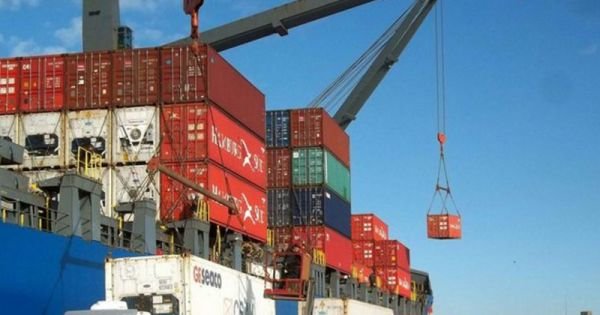Bilateral trade shows Argentina’s growing dependence on neighboring Brazil
[ad_1]
Bilateral trade shows Argentina’s growing dependence on neighboring Brazil
During August Argentina had a negative trade balance with Brazil, US$ 292 million, for the eighth consecutive month
Overwhelmed by its financial problems and lack of foreign currency, which seriously limits international trade, there is an increasing position among some Argentine government theorists that Brazil’s better performance could help its Mercosur partner with loans and other credit instruments to keep the country’s activity going and safeguarding jobs.
In other words and following on this theory it is better to become Brazil dependent, protected by the Brazilian shield than face the contortions of international multilateral organizations and their continuous pressure on a highly weakened, politically and financially, Argentina, virtually headless in such a complicated scenario.
No wonder then that during August 2023, Argentine/Brazil bilateral trade registered a deficit of US$ 292 million, marking the eighth consecutive month of a negative balance for Argentina. According to the latest report from the Argentine Chamber of Commerce and Services (CAC), bilateral trade totaled US$ 2.571 billion in August and accumulated a deficit of US$ 4.475 billion for the year.
In the eighth month of the year bilateral trade with Brazil decreased by 10.7% compared to the same period in 2022, when it reached US$ 2.877 billion. Additionally, there was a 1.2% drop compared to July, driven by a 10.6% decrease in imports despite a 14% increase in exports.
Argentine exports to Brazil fell by 13.3% in August 2023 compared to the same month in 2022, totaling US$ 1.139 billion. On the other hand, imports from the Mercosur partner amounted to US$ 1.431 billion, presenting a year-on-year decrease of 8.4%.
Consequently, Argentina’s trade balance recorded a deficit of US$ 292 million on the eighth consecutive month.
In the first eight months of the year, trade between the two countries resulted in a negative balance of US$ 4.475 billion for Argentina. It’s worth noting that exports decreased by 5% from January to August 2023 compared to the same period in 2022, while Brazilian exports increased by 20.4% during the same period.
Brazil, the largest country in South America and leading economy, is Argentina’s primary trade partner, a relationship that has historically experienced deficits due to the strategic importance of Brazilian imports for Argentine production.
The year-on-year drop in Argentine exports to Brazil in August (13.3%) was mainly due to reduced exports of motor vehicles for transporting goods, piston engines, unprocessed wheat, and rye. The year-on-year decrease in Argentine imports (8.4%) was primarily due to reduced imports of passenger motor vehicles and electric power.
In the ranking of Brazil’s largest suppliers, Argentina held the fourth position, behind China, Hong Kong, and Macau (US$ 5.021 billion), the United States (US$ 3.208 billion), and Germany (US$ 1.239 billion). Among Brazil’s main buyers, Argentina ranked third, behind China, Hong Kong, and Macau (US$ 9.343 billion) and the United States (US$ 3.369 billion).
Overall Brazilian exports to the world increased by 1.4% in August 2023 compared to the same month in 2022, rising from US$ 30.787 billion to US$ 31.210 billion. On the other hand, total imports decreased by 19.6% compared to the previous year, from US$ 26.680 billion in 2022 to US$ 21.444 billion this year.
Consequently, Brazil is experiencing a trade surplus for the nineteenth consecutive month, totaling US$ 9.767 billion, a situation similar to that observed in August 2022 when the balance was positive at US$ 4.106 billion.
Market expectations surveyed by the Central Bank of Brazil in August showed an increase compared to the previous month in terms of growth estimates for 2023 (2.56% versus 2.26%).
[ad_2]
Source link




